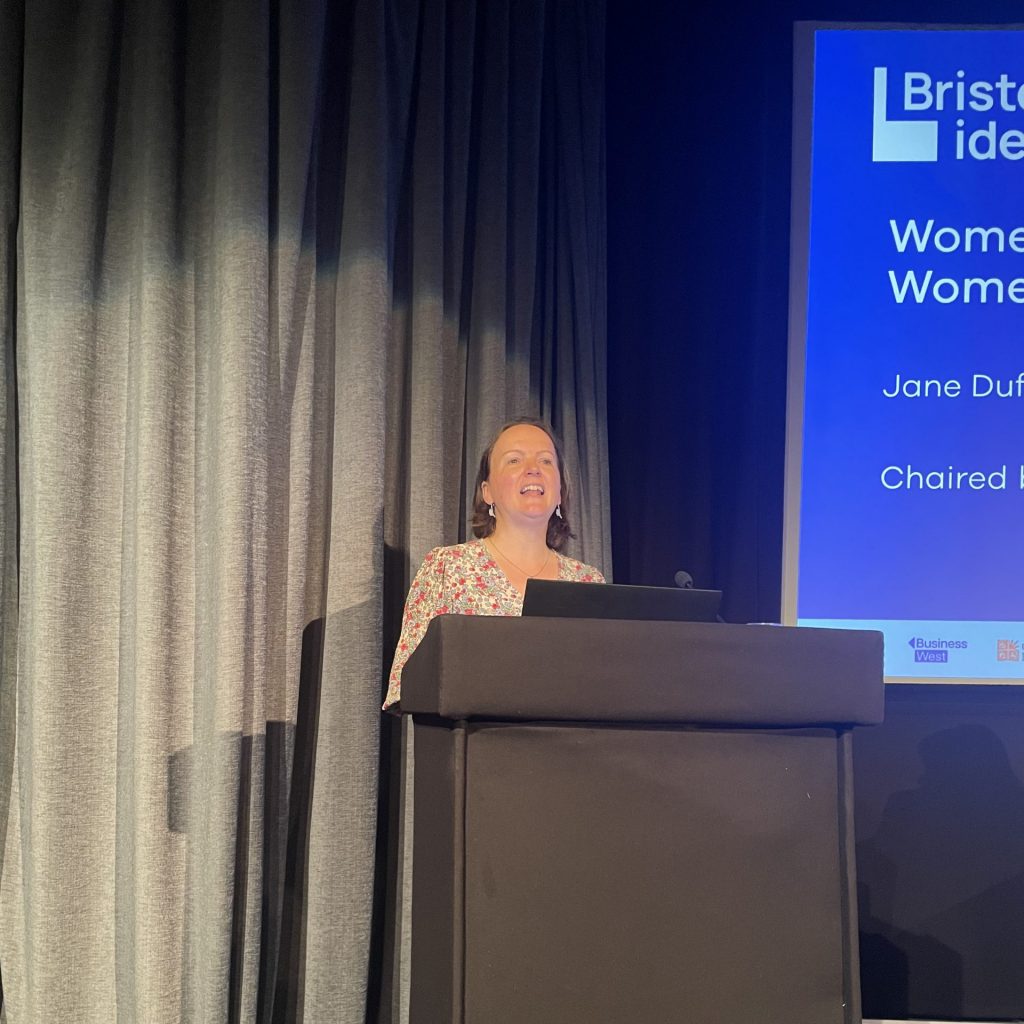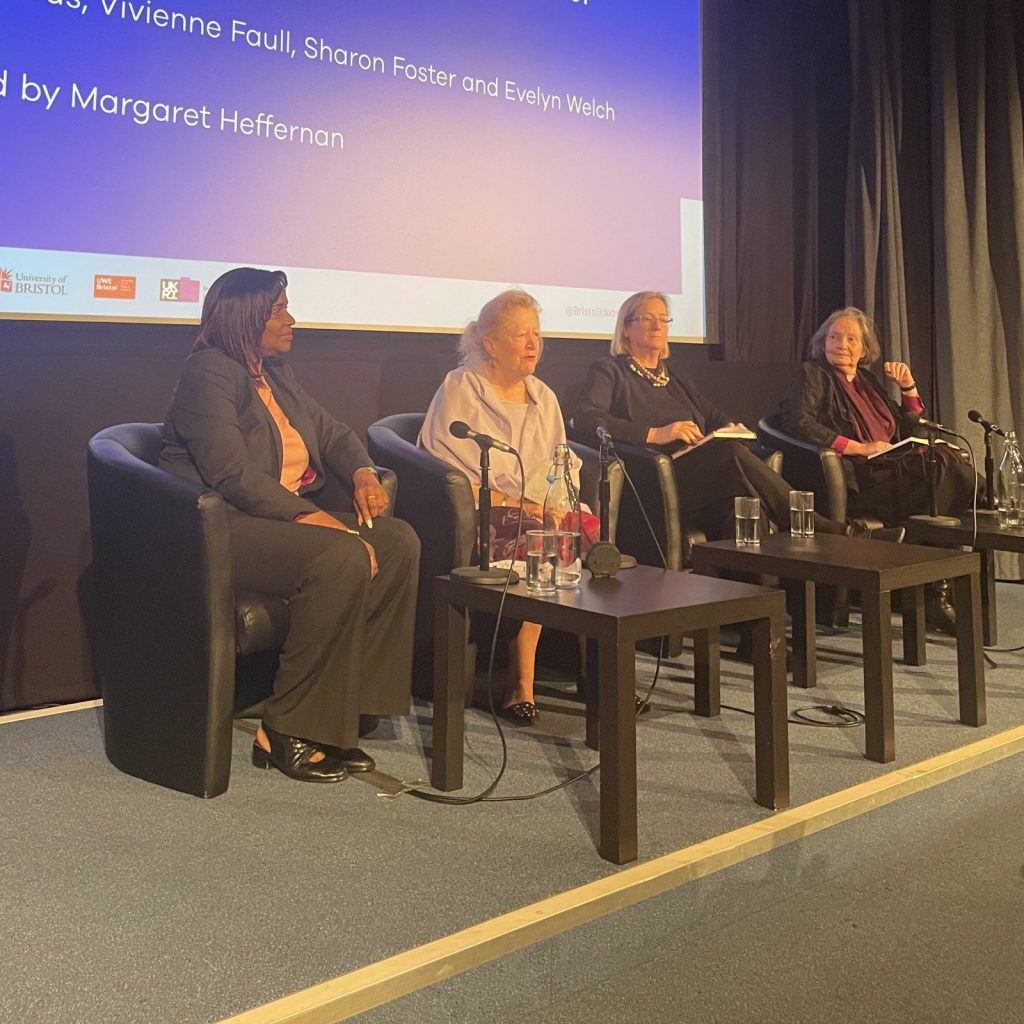

By Genevieve Bland, Volunteer Woman Reporter for Bristol Women’s Voice
During the ‘Festival of The Future City,’ women leaders in Bristol came together for a panel discussion at the Watershed exploring “Leadership: The Impact of Women on Cities.”
The panel was made up of Vivienne Faull, Bishop in Bristol, Sharon Foster, serving High Sheriff of Bristol, and Evelyn Welch, Vice-Chancellor of the University of Bristol. The panel discussion was moderated by Dr. Margaret Heffernan, professor, author, and CEO, and it began with an introduction by Jane Duffus, author of the two volumes dedicated to ‘The Women Who Built Bristol.’ These volumes explore the prominent women in Bristol’s rich history.
Women’s Influence Potential
Sharon Foster underlined a pivotal point during the panel discussion, stating: “If you’re not at the table, how can you change the process?”. She highlighted the crucial role of visibility in driving change, particularly concerning greater equality for Black women who are frequently confined to diversity roles as mere checkboxes.
Evelyn Welch highlighted the importance of not only recognising the visible hierarchy but also understanding the less apparent one to navigate the journey toward leadership positions. She shared her personal experience of being dissuaded from pursuing leadership roles, speculating that this discouragement may stem from the subconscious belief that women are better suited for managing tasks associated with domestic roles rather than being perceived as visionaries, a trait sometimes labelled as ‘masculine.’
Addressing the challenges faced, Evelyn Welch pointed out the lack of transparency in selection processes and questioned the nature of decision-making, highlighting that legislation, though valuable, can sometimes appear overly checkbox-like. Sharon Foster added that unconscious biases, such as race, persist, recounting an instance where she was asked to train someone for a job she had applied for internally and was denied.
Intersection of authority and gender
Jane Duffus highlighted the historical significance of socialist influences among many female figures in Bristol’s history, who were active in trade unions and women’s rights movements. Sharon Foster raised the point that most women MPs have a background in unions, suggesting that women’s leadership might be guided by an altruistic feminine streak. The chairwoman observed the substantial role women play in local communities, often being the ones who get things done, especially in terms of social work.
Nevertheless, she posed a vital query, “How sustainable is it to keep relying on women? Are we achieving the right balance?” Ms Faull seconded this notion, noting how society tends to internalize the stereotype that women are naturally inclined to work in the social care sector. She argued that true change for women necessitates a degree of transgression – to be a troublemaker. Vice-chancellor of the University of Bristol added, “What impact does the increasing presence of women have on the entire hierarchy?” and asserted that dispelling stereotypes is a fundamental aspect of women’s ascent to leadership positions.
Other noteworthy remarks included Dr Heffernan’s emphasis on the importance of collaboration, advocating for “power with” men as opposed to “power over” men to support women in forging enduring paths to leadership roles. the High Sheriff of Bristol stressed the significance of understanding how panels operate and unravelling the mechanics of the game to demystify the hidden hierarchy.
The panel concluded with this insightful message from Ms. Welch: “The world we create; we co-create”.

